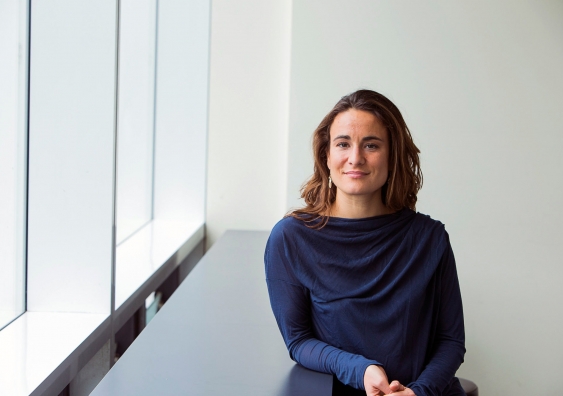Are gender norms holding back the economy?
UNSW Business School will use $1m in federal funding to investigate how assumptions about gender can influence economic growth.
UNSW Business School will use $1m in federal funding to investigate how assumptions about gender can influence economic growth.

Professor Pauline Grosjean of UNSW Business School has been awarded nearly $1m in research funding to look at the influence of gender “norms” on economic development.
“Stereotypical gender norms not only prevent women and girls from realising their full potential. They also affect men in ways that are potentially detrimental to men themselves and to growth,” Professor Grosjean says.
The research will be two-pronged. One part will examine the impact of gender roles in the developing economies of the Solomon Islands and South-East Africa. The other will measure how gender norms shape corporate culture and the representation of women within firms, and assess their impacts on the financial performance of Australian public companies.
“We want to understand what defines gender norms, how they affect productivity and how they can affect growth in economies,” says Professor Grosjean.
“In developed and developing economies alike, social norms apply expectations about who will work in the labour force and who works at home and takes care of children,” she says. “There are also occupations that are perceived as more masculine or feminine. Interestingly, in developing countries, women are often heavily involved in farm work and sell their farm products, but as the economy develops the men become the brokers or intermediaries.
“This research will have far-reaching impact. Based on our findings, we will be able to give policy advice to governments on many fronts – from better targeting of international development programs to improving gender inclusion in firms.”
The government awarded 100 Australian Research Council fellowships, from a total funding pool of $87.8m. The ARC fellowships support excellent mid-career researchers to undertake high quality research in areas of national and international benefit. Only two business-related fellowships were awarded this year under the Australian Government’s Future Fellowships program.
Dean of UNSW Business School Professor Chris Styles said: “This award is a testament to the strength of research at UNSW Business School – and our leading role in this area. The size of the award is impressive and is an acknowledgement of Pauline’s research strength in areas of national and international significance.”
Professor Pauline Grosjean was awarded a four-year fellowship ($998,299) for research into: “Origins, evolution, and economic cost of gender norms”.
A proposal summary said: "Gender norms are slow to change, and are key drivers of economic development. This proposal leverages natural experiments to test their causal implications on two major channels of economic growth: the trust shared by individuals and the productivity of firms. It will use cutting-edge empirical techniques to generate novel measures of diversity and inclusion for Australian firms, and will conduct original fieldwork, matching experimental measures of trust and cooperation with variation in traditional male versus female roles. This research aims at improving fundamental knowledge about how cultural norms shape economic outcomes and anticipates delivering practical policy recommendations for more efficient and inclusive economic growth."